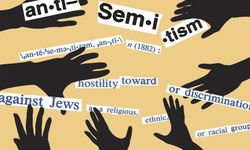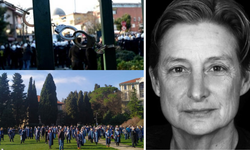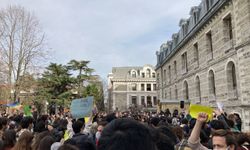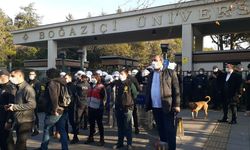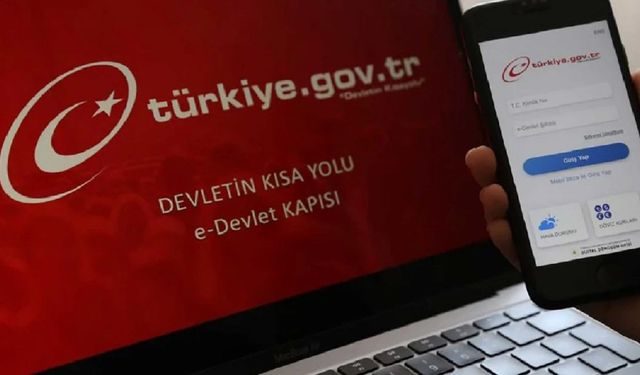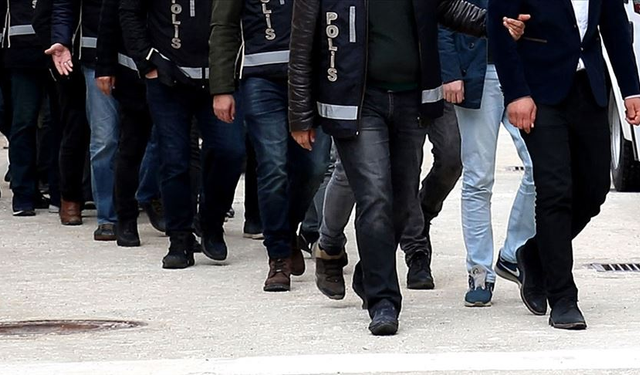AKP chair & President Erdoğan said one of his goals was to create a ‘pious generation,’ that will work for the construction of a new civilisation. As the first generation of youth that was born and raised in the AKP era turn 18 this year, all eyes are on them to determine whether the President’s ambitions were fruitful. Education has been an essential part of realizing his goals, as many facets of education have been adapted to serve as a means of government promotion. Consequently, Turkish universities are finding themselves battling between academic autonomy and government interference. Universities, arguably the center of political ideas and social movement, have less and less space to move freely. I spoke with Prof. Dr. Resit Canbeyli of Bogazici University about the issues universities face and the problems the new generation will inherit in their academic careers.
Dr. Resit Canbeyli is a professor of Psychology. After finishing his PhD at the University of Columbia, he started lecturing at Boğaziçi University in 1978. He is active in the Association of Academic Staff (TÜMÖD) and the University Students Communication Association (ÜNIDER), and has been dealing with university matters for 42 years. “It is unfair to attribute all the issues of Turkish universities to this government, but they certainly have done more harm than any other regime. Universities, with all their potential and qualities, are under siege.”
KEMALIST EDUCATION MENTALITY
State control over higher education in Turkey became truly institutionalized after the 1980 military coup. Following a period of conflict between far-left and far-right groups in the seventies, it was utterly salient for the new military government to hold a tight grip over the academic discourse. Consequently, 3,854 teachers and 120 professors were dismissed and many others left the country or were exiled (Ref:1). In 1982, the Council of Higher Education (YÖK) was established, overseeing all higher education institutions. Another rule was imposed on universities after the military coup: All students in higher education were to take part in a mandatory Turkish History class, no matter their major. The curriculum, being in the hands of the government, strongly embraced Kemalist views. “We did not agree with it,” Dr. Canbeyli says. “It was part of government indoctrination. A small number of intellectuals warned of the consequences, and they turned out to be correct. While the Left never damaged this country, simply because it had never been in power, hatred for leftist ideology was tangible.” As the Cold War was still ongoing and the US was an important ally for Turkey, measures against the Left were encouraged. “If people became a bit more religious, they could be guided away from the Soviet Union with more ease. Consequently, the government attempted to blend Islamic virtues with the Kemalist state.” However, apart from Leftist ideas, the government kept a short leash on religion in education as well. To remain in control of the discourse on campuses, criticism of the government or its curriculum were silenced. “They suppressed any kind of independent thinking, especially when it came to Leftist and ultra-Islamic views. They embraced some of the worst policies of Atatürk, one of which being the ban on headscarves in universities. Now we are paying dearly for that, as well as the Kemalists. Nobody stood up to say how unconstitutional it was.”
EDUCATION DESECULARIZED
It was in this environment that higher education got its secular character, and was therefore despised by pro-Islamic politics for its exclusion. Since the Justice & Development Party AKP came to power in 2002, it promised to implement two major reforms that would challenge the secular character of education. First was lifting the ban of headscarves in public life (including universities), which was implemented in its entirety in 2013. Many universities were already opposed to the ban, but could not stand up to the YÖK. Dr. Canbeyli tells, “We fought hard against the headscarf ban. This society has always targeted women. Resentment from the pro-Islamic side was justified in a sense that a public institution, financed by the people, closed its gate to many women in this country. This problem is solved in a sense, but the hatred for universities did not dwindle. Instead [the government] started to think it controlled universities.” A second measure to desecularise education was to even out the opportunities for secular and religious high school education students to enter university - students of the religion-based vocational Imam Hatip high schools were only eligible to enter the theological faculties of universities as they graduated from schools that specifically train imams. This law came to pass in 2007, making these pupils eligible for higher education in all fields. Moreover, Imam Hatip middle schools were re-established as a groundbreaking education-reform bill passed the Parliament in 2012 -after İmam Hatip secondary schools had ceased to exist when the 8-year non-stop primary school bill had been passed in 1997.
CONVERTING REGULAR SCHOOLS TO IMAM HATIP SCHOOLS
What followed was a quick expansion of vocational Imam Hatip schools throughout the country. According to Reuters, as of 2018 the budget for religious high schools rose to 6.57 billion TL ($1.68 billion) - nearly a quarter of the total upper schools budget. These numbers conclude that more than double is spent on an Imam Hatip pupil compared to a standard school pupil. This is not very surprising, seeing that Erdogan together with many members of the AKP cabinet are Imam Hatip alumni (Ref: 2). Moreover, due to the automatic placement system, parents who cannot afford private schooling more and more often have no choice but to send their children to Imam Hatip schools. As the AKP has delivered inclusivity for religious students in the Turkish education system, it has nearly abolished the choice not to attend some form of religious education. An extensive revision of curriculum and textbooks was implemented under State of Emergency conditions in the whole of secondary and upper education in the country in 2017, following the coup attempt of July 2016. It has since been criticised by scholars, secular groups, education rights groups and women’s groups for its ‘Islamic character, and lack of respect for religious differences and gender equality.’ Nonetheless, Dr. Canbeyli is not convinced the pressure of the government on education will have the desired outcome: “[AKP] has been very systematic in its education reform. They start with Quran schools for children around the age of 6, then send them to Imam Hatip schools. What follows is university, which is under government control. Through education, they want to reform this country in 10 to 20 years. The Kemalists tried the same, and failed. Students are not stupid, they hear their teachers speak of the Prophet and then see what is being done today in the name of religion.”
TAKEOVER OF ACADEMIC SPACE
When it comes to higher education, universities have always been a place of debate and activism. However, academic research and intellectual discourses are increasingly “corrected” through governmental interference. Dr. Canbeyli describes it as going from one extreme to another, “As more universities were established in the last 30 years, we thought that we would see less central control and more autonomy. The opposite happened. We now have 183 universities, and each of them is controlled directly by one man.” The hierarchy that was put in place in universities, is the result of mass dismissals in the last years. In January of 2016, 1,128 scholars from 89 Turkish universities signed the so-called ‘Peace Petition’, calling for an end to the fight between Turkish state and the members of PKK. Of these ‘Academics for Peace,’ more than 700 scholars have been criminally charged with making propaganda for a terrorist organization. After the attempted coup of July 2016, academics were again targeted. Around 5,800 scholars were dismissed from public universities. More than 1,500 university deans were pressured to resign and replaced with more favorable candidates. Many academics voluntarily left the country to be able to practice their profession in peace. This poses another problem for the academic life in Turkey, “The threat is more and more imminent. As professors retire or are dismissed, they are replaced by people with no other qualifications than their connections, for example by having studied at an Imam Hatip school. The plan is to infiltrate every university with pro-Islamic elites and make any other kind of attitude unacceptable.”
UNIVERSITY AS A PLACE OF EXPRESSION
According to the Human Rights Watch, the government’s actions create “a climate of fear and self-censorship on campus, and breach Turkey’s obligations under human rights law to respect and protect academic freedom and freedom of expression.” Since the popular Gezi Park Protests of 2013, in which many students and academics were active, the government has barely allowed demonstrations to take place. Moreover, it is actively prosecuting those who counter its policies. An example of this is the student protest of Turkey’s military ‘Operation Olive Branch,’ which started after pro-government students distributed Turkish delight on campus in support of the military, in March of 2018. 27 students who protested this congratulatory action on campus were given jail time, and Erdogan called them ‘terrorists’. Still, Dr. Canbeyli sees the value of university as a place of coming together: “Bogazici in particular is not as polarized as other institutions, but there is now a larger group of pro-Islamic students. Sometimes this will manifest itself in arguments, sometimes it will boil down to physical conflict. However, our education calls for collaboration and discussion. People are free to express themselves.” According to Dr. Canbeyli, another problem has arisen that will challenge the quality of education in universities as well as the change to counter polarization among students: “We see a new trend happening with distant education due to the Covid-19 outbreak. In a classroom I can speak as I please, but if classes are broadcast online anything can be used against you. They can control people if they stay at home. I hope these measures will remain for only one more semester, but if they wish they are able to implement more and more online education.”
THE ‘PIOUS GENERATION’
This is the environment that Erdoğan’s ‘pious generation’ will enter their university career in. “Younger generations want to go abroad for good reason, they do not see a future here,” Dr. Canbeyli says right off the bat. However, he remains positive about his new students. While being brought up in the AKP era, this generation also grew up being experts in finding alternative media outlets and listening to other narratives online. “[The government] is thinking in terms of their parents’ time, but much has changed. They are world citizens, and know what is going on, on an international scale. You cannot suppress them.” Nonetheless, there are serious problems to be faced before Turkish students can live up to their potential. These issues do not confine themselves to the borders of Turkey, as Dr. Canbeyli explains: “This is a fantastic generation, but they are not getting what they deserve. They know what is going on in the world and see the reality, yet they cannot participate. They have been deprived of a good passport.” He gives the example of one of his students who did not receive a German education visa because she did not have 30,000 TL on her bank account. “How can you ask that from a 22-year old? As prices go up, travelling to conferences or paying for registration fees have become harder. Since I was young, people have had financial difficulties in this country. How then can we reach a certain level of sophistication and intellectual freedom? For many Turkish students it is nearly impossible to go someplace and create something new, to remove yourself from this place and this moment. In the meantime, your institution is being targeted and new rules are being made for you to follow. This is a prison.”
“SEE YOU AT THE BALLOT BOX”
Whether the ‘pious generation’ will be working in the government’s favour remains to be seen. It appears that some would like to see change, with voices becoming louder recently: University entrance exams took place a month earlier than planned, leaving less preparation time and making it risky to catch the virus. Consequently, many youngsters took to social media to vent their frustrations. Tags saying ‘See you at the ballot box’ have been trending on Twitter, and a live broadcast of Erdogan speaking to youths was massively downvoted leading to the closing of its comment section. Uncomfortably coincidental was last week’s announcement of plans for data localization as a means to control social media, exactly targeting what Dr. Canbeyli sees as one of this generation’s biggest qualities: Access to information and alternative narratives.
